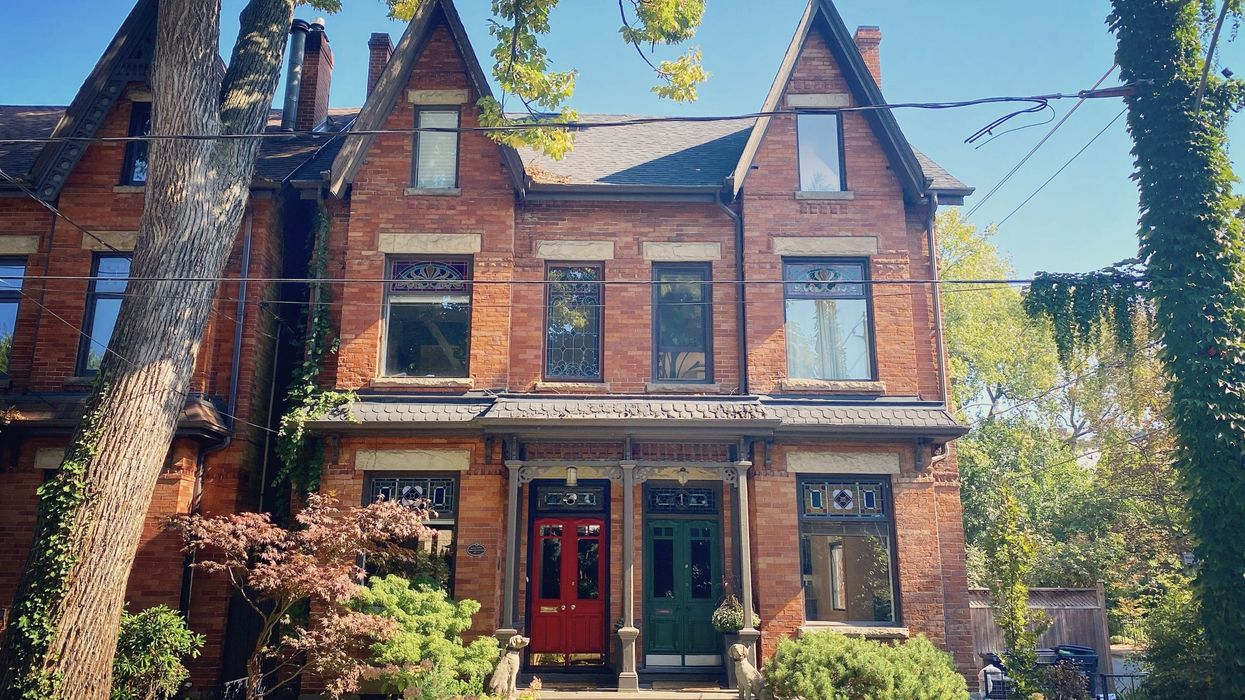Recent headlines may have made a significant portion of Canadians feeling defeated when it comes to spending their hard earned dollars on monthly rent.
On September 28, real estate firm Royal LePage released a report that boldly claimed it was more financially advantageous for Canadians to buy a home rather than rent one. In fact, the report found that homeowners paid $769 per month less than renters in the second quarter of 2021.
In the report, Royal Lepage claimed that homeowners come out ahead financially in more than 90% of scenarios analyzed. Therefore, the conclusion was that it is cheaper to be a homeowner than it is to be a renter in Canada.
The problem is that the former and the latter sentences in the above paragraph don't align -- and several media outlets across the country were quick to suggest they do.
Sure, in an ideal world, owning is a better investment. If you can afford to invest in Canadian real estate, the last two decades will show you time and again that that would be the right decision. The return on property investment in this country in the the last 50 years, particularly in its major markets, has contributed in large part to what is currently the largest generational transfer of wealth in history (Boomers to Gen X/Millennials).
But the bottom line is that you need to be able to afford to invest before an investment can make sense. And coming up with down payment large enough to do so in spots like Toronto and Vancouver is so nearly impossible that first-time buyers aren't sure whether to laugh, cry, or just leave.
Indeed, in order to reach its conclusion, the study not only assumes that everyone has the request 20% downpayment required to secure a home, it also excludes any payment against the principal in its monthly calculations (because somehow needing the monthly cash necessary to cover those payments, regardless of whether that can be considered to be going toward equity or not, isn't a real consideration?) and is based on the average price of a Canadian property at $733,459.

“It is a bit odd in that their overall position that historically, homeowners have on average come out ahead financially versus renters is true, but the analysis and assumptions raises a few questions for me,” says Preet Banerjee, personal finance expert and founder of MoneyGaps, an online tool for financial advisors.
First, Banerjee points to the fact that the press release clearly states it is a conditional analysis -- the condition being the aforementioned assumption that everyone has the ability to bring a 20% down payment to the table.
“This is going to be a select crowd,” says Banerjee. “For the representative dwelling they chose, it had a purchase price of $733,459, so a 20% down payment would be $146,692. Since one of the main data points being used in headlines from the study is the monthly difference, all other things being equal, a higher down payment is going to reduce the mortgage payment. That being said, the principal portion of that mortgage payment is then removed from the monthly comparison since it's a forced savings.”
While he acknowledges that this is indeed forced savings, Banerjee says he doesn’t think people think in terms of "net owners' cost versus renting" on a monthly basis.
“They see a higher monthly payment, as the report mentions happens in 79% of the 278 cases analyzed when assuming a 25-year amortization. And I think this is getting more to the heart of the matter,” says Banerjee. “People are stretched thin both by the actual monthly outlay for ownership versus renting of similar dwellings, plus the gargantuan size of down payments required to even get to the position of having a large mortgage.”
It’s also important to note the price differences in homes across the country. Notoriously pricey cities like Toronto and Vancouver, where the average price of a home is $1,136,280 and just under $2M respectively, make coming up with the down payment nearly impossible for young professionals without help from family (see: the bank of mom and dad).

The report also low balls the costs of maintenance and repairs, says Banerjee.
“The report shows an estimate of $60 a month for maintenance and repairs and $147 for condo fees. Assuming a freehold and no condo fees, most people will find maintenance and repairs closer to 1.5% to 3% of the initial home price per year,” says Banerjee.
“At the low end of that estimate, that's $917 per month, and basically wipes out the $769 ‘owner's advantage’ being quoted. For a condo, assuming $1,000 per square-feet in price, a $733,459 price gets you a 733 sq-ft condo. If we use 65 cents per square foot per month as the condo fee, that's $476.45/month in condo fees. Again, much higher than the overall maintenance and condo fee estimates in the representative example.”
Mark Kenney, President and CEO of the Canadian Apartment Properties and Real Estate Investment Trust (CAPREIT) agrees that the math just simply doesn’t add up.
“It’s ridiculous. I just did a quick calculation. A $733,000 home is about a $2500 per month payment, before taxes, utilities, and maintenance -- in some cases, before condo fees,” said Kenney. “When you look at the CAPREIT portfolio, our average rents are $1300. How does this compare? Are they talking about renting luxury brand-new condos in Yorkville? I don’t know where they’re getting these average rents from. CMHC posted rents do not match this math at all.”
Admittedly, $1300 doesn’t get you much more than a room or older studio apartment in cities like Toronto, where rents are quickly climbing back to pre-pandemic levels. But we’re dealing with national averages here.
“When you look at the average rents in the CAPREIT portfolio, when you look at our average rent as a percent of average family income in Canada, we are 25% of income. We are incredibly affordable,” says Kenney, “But if you look at people who are buying homes at $733,000 with the average Canadian income, you’re likely spending close to 70%. That math isn’t even close. It’s not true for the CAPREIT portfolio."
How can you own a home for $531 per month, questions Kenney. (The average rent in the CAPREIT portfolio, $1300, minus the $769 more per month paid by renters).
To be fair, the report does highlight some situations when renting may indeed be the best option.
“Mr. Dunning does mention in his report that he believes that for people who move often, renting may often be better financially,” says Banerjee. “Another consideration he rightly mentions is that people may not necessarily have the same dwelling/location preferences when they are considering renting versus owning.”
And there’s something to be said for that. Some people may prefer the top-of-the-line appliances, a swimming pool, and a concierge that can come with renting a condo, as opposed to the aging, fixer-upper house that’s within budget. We see this play out in Toronto all the time.
Aside from the financial strain, homeownership can take a toll on other aspects of one’s life. “The emotional benefits of home ownership always seem to get mentioned but the mental health toll of crushing down payments and monthly payments never does,” says Banerjee.
Banerjee says the report might not take into account the negative emotional aspects of the analysis with its claim that that even if the assumed appreciation was -10% for real estate cumulatively for the next 10 years, then assuming a moderately favourable mortgage renewal rate, the homeowner would break even.
“Did this also include the appropriate maintenance and repair expenses? I did not see the projection of rates of return on non-housing investments for the opportunity costs analysis,” asks Banerjee.
“But stripping that away, from a typical buyer's perspective, if I bought a $1 million house, and it was worth $900,000 after 10 years, then also factoring acquisition costs of 2% ($20,000) and sales costs, including realtor fees, of 6% ($60,000), and just one major house repair on top of regular maintenance for a cumulative $75,000, I don't know if I would feel like it was break-even even thought the comparative rent costs over 10 years with rental increases might be a wash.”
At any rate, if nothing else, the hope is that Canadian house-hunters see the report though a critical lens. And that not too many renters’ days were ruined.





















